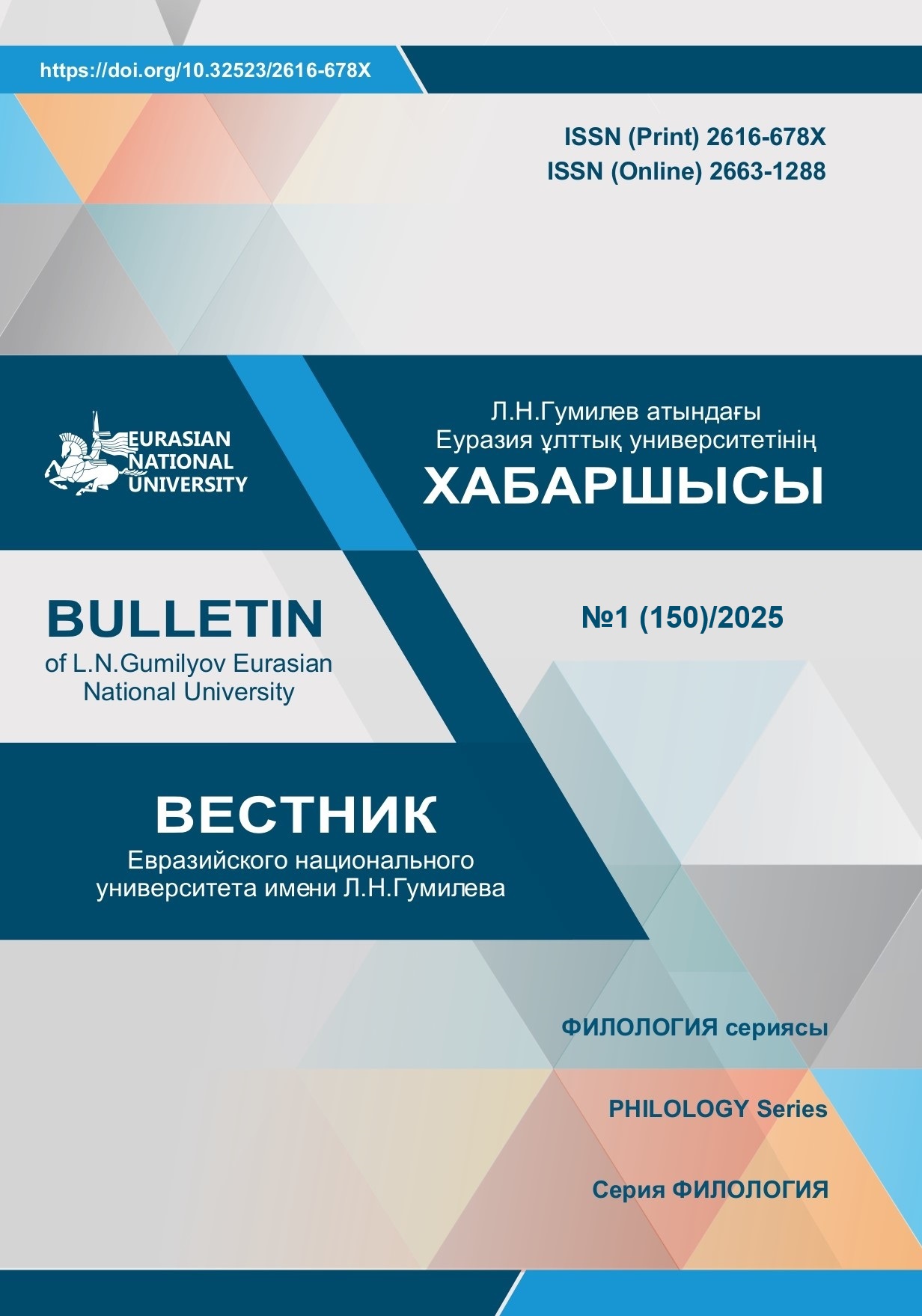Studying baksy in Kazakh literature
Views: 287 / PDF downloads: 170
DOI:
https://doi.org/10.32523/2616-678X-2025-150-1-234-245Keywords:
tengri, baksy, divinity, beliefs, dhikr poems, mysticismAbstract
The article analyzes the baksy (clergyman in Tengrism), considered representative of the Tengrism era, and the problem of its study in Kazakh science. The necessity and benefits of the baksy are examined, as well as the works of researchers who contributed to the definition of the professional personality of the baksy. It is known in science that traditions such as pre-Islamic theology, Mithraism, Zoroastrism, and shamanism are little studied and analyzed, and are of interest to society. Starting from the Turkic period, the assessments and conclusions given by famous scientists to this belief, which has its place in the formation of the Kazakh people as a nation, are differentiated, and the features of the baksy are critically analyzed. The authors used hermeneutic, descriptive, historical narrative, and historical-axiological methods when they considered it necessary to study in domestic science one of the pre-Islamic beliefs of the Kazakh steppe - baksy. As a result, it was assessed and weighed that the attitude towards the ancient art of baksy has changed today. In addition to knowledge of the history of the religious worldview, the integrity of the religious worldview is also important. At the same time, it has its significance in strengthening national identity.
Downloads
Published
How to Cite
Issue
Section
License
Here is the academic English version suitable for publication on the journal website:
The academic journal “Bulletin of L.N. Gumilyov Eurasian National University. Philology Series” adheres to an Open Access policy for all published materials, based on the principle of free and equitable dissemination of scholarly knowledge. The Editorial Board believes that open access to research results contributes to the advancement of philological science, strengthens academic communication, and promotes the integration of national research into the international scientific community.
1. Free and Open Access
All articles published in the journal are made openly available on the official website of the journal and are accessible to all users without restrictions, registration, or payment.
Users are entitled to:
-
freely read and download materials;
-
copy and distribute the texts of publications;
-
print articles;
-
use materials for scientific and educational purposes, provided that proper attribution is given to the author(s) and the original source of publication.
2. Licensing
Journal materials are distributed under the terms of the Creative Commons Attribution-NonCommercial 4.0 International (CC BY-NC 4.0) license:
https://creativecommons.org/licenses/by-nc/4.0/
This license permits the use, copying, distribution, and adaptation of the materials for non-commercial purposes, provided that appropriate credit is given to the author(s) and a link to the original publication is included.
3. Benefits of Open Access
The Open Access policy ensures:
-
increased visibility and citation of scholarly publications;
-
prompt dissemination of research findings in the fields of philology, linguistics, literary studies, and translation studies;
-
expansion of international academic cooperation;
-
access for readers to up-to-date scientific information without financial or technical barriers.
The Editorial Board is committed to ensuring transparency in editorial processes, maintaining high standards of peer review, and providing broad accessibility to research outcomes in the field of philological studies.










